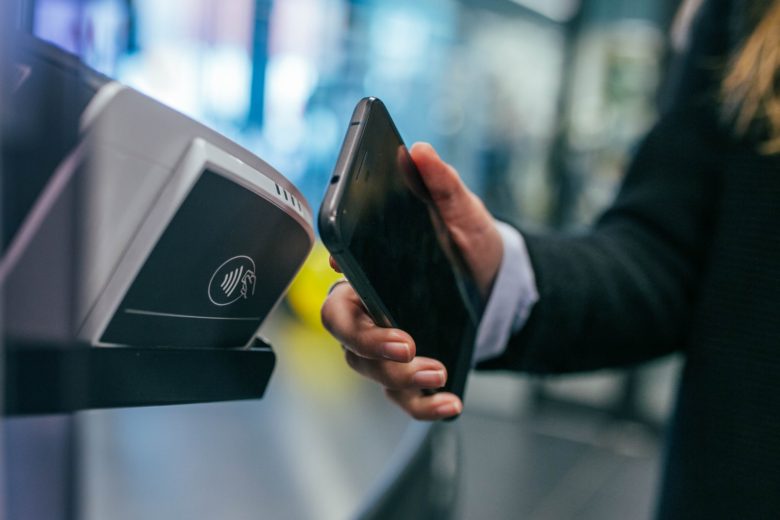Since the average cost of a domestic business trip in the United States is around $990, and the average for an international business trip can amount to $2,525, we can definitely say that Business Travel costs a lot of money.
But Business Travel is not only expensive for companies. Employees can also end up spending a considerable amount of their personal money while on a business trip.
This is no wonder as most Corporate Travel Policies put a limit on how much company money an employee can spend on a business trip. While the most basic costs are usually covered, some others may fall outside of the CTP’s scope.
While on a business trip, you might wonder which items you can report to your company as travel expenses and what you should leave out.
And while this can vary wildly between companies and job positions, this post can be a sensible rule of thumb to answer your travel-cost-related questions
Table of Contents
- Your Company’s CTP Should Be Your Bible
- Questions You Can Your Manager/HR person about Your Upcoming Business Trip
- Will I get a travel allowance before traveling on business?
- Will I receive any extra compensation for my business trip other than my travel expenses?
- How do I declare an expense if I don’t have an invoice/receipt?
- What about medical expenses during a business trip?
- Are entertainment costs included during a business trip?
- What Costs Should Be Covered as Travel Expenses by the Employer during Business Travel
- What Costs Are Rarely Covered by the Employer during Business Travel as Travel Expenses
- Conclusion
Your Company’s CTP Should Be Your Bible
Before embarking on your first business trip with a new company, the first thing you need to check is their Corporate Travel Policy.
In the best-case scenario, the CTP will give you exact instructions on how much money you can spend during a business trip. It will also tell you the categories on which you can use company resources before, during, and after a business trip.
However, some Corporate Travel Policies are looser on their definitions and, at best, they can only serve as a general guide.
Also, just like any Holy Book, some of your company’s CTP’s commandments can be interpreted in different ways by different people, including your manager.
After you’ve thoroughly read your company’s Travel Policy, go to your manager or HR person and discuss any questions you may have with them. When it comes to Business Travel, it’s always best to be safe than sorry.
Questions You Can Your Manager/HR person about Your Upcoming Business Trip

So by this point, you have probably memorized your company’s CTP and found all the loopholes that may apply to your trip.
Corporate Travel Policies are usually very specific about things such as transportation and accommodation costs. However, they can get vaguer when it comes to other categories. These are some of the things usually left out on the standard CTP.
Will I get a travel allowance before traveling on business?
This is an important question to ask, especially when the employee has to declare their travel expenses after they’ve come back from the trip.
Will I receive any extra compensation for my business trip other than my travel expenses?
If not specified on the CTP, the answer to this is usually a no. However, some companies offer extra remuneration to employees on business trips, especially if the trip is long or to a place far more expensive than the company’s location town.
How do I declare an expense if I don’t have an invoice/receipt?
An accountant’s nightmare and something rarely reflected on Corporate Travel Policies.
In a perfect world, everything you buy leaves a paper trail behind it in the form of an invoice or receipt. However, this is not a perfect world and managers need to understand that.
Some items like tips, food or drinks bought from street vendors or public transport tickets usually are cash payments and rarely include a receipt.
In some foreign countries, the list can extend to taxis and even shops and restaurants.
In addition to this, bad stuff happens sometimes. Bags can get lost, wallets can get stolen.
You should know what your company’s stand on these situations is.
Tip: Use your phone to take pictures of every invoice/receipt just in case.
What about medical expenses during a business trip?
Most big companies include travel insurance policies for employees undertaking Business Travel, especially for trips abroad. Ask your manager or HR person about what these policies include and what to do in case of an incident while on a business trip.
As a rule of thumb, a travel insurance policy should cover medical expenses, repatriation and sometimes theft or document loss. They usually do not cover dental or mental health procedures and pre-existing or self-inflicted medical conditions.
You should be absolutely clear about what your travel insurance policies include, and keep the insurance company’s phone number handy while on your trip.
Are entertainment costs included during a business trip?
As a rule of thumb, and when not specified, the answer is no. Since the employee should be getting their usual wages while on BT, entertainment costs are usually not billable as a business expense. However, there can be situations when sightseeing, non-business-related event tickets or even partying are covered by the employer, for instance:
- When entertaining a client, supplier or customer
- During team-building trips
- During incentive travel
What Costs Should Be Covered as Travel Expenses by the Employer during Business Travel
As a general rule, a solid Corporate Travel Policy should have clear information about:
- Airfare, bus or train travel
- Accommodation
- Car rental
- Gas costs
- Taxis and public transportation
- Travel insurance and medical expenses
- Food and drinks
- Tipping
- Travel allowances
- Other billable travel expenses
- Extra compensation
- Event tickets
- Client-related expenses
- Credit card and money exchange fees
- Entertainment
The Corporate Travel Manual should also include clear instructions about:
- Business Travel booking process
- How to request a travel allowance and the process to pay it back if unused
- How to get travel expenses reimbursed process after the trip
- Etiquette & Do’s and Dont’s during BT
- Who to contact for further information
What Costs Are Rarely Covered by the Employer during Business Travel as Travel Expenses
These are bills that almost invariably aren’t covered by employers.
Some of them can be discussed with your manager, some rules can always be bent, some shouldn’t even be brought up.
- Personal expenses (shampoo, toothpaste, etc)
- Treatment or medication for pre-existing conditions
- Personal entertainment
- Alcoholic drinks
- Recreational drugs
- Fines
- Bribes
- Legal fees for personal misconduct
Conclusion
Business Travel can be expensive for both the employer and the employee.
A solid Corporate Travel Manual is very important for all parts to be clear about Business Travel.
As important as it is, CTPs rarely cover all situations and unexpected things can happen.
Clear communication with your manager or HR department is crucial before, during and after a business trip.
Did you enjoy this post? What Business Travel related expense have you had trouble getting reimbursed? Let us know in the comments.













